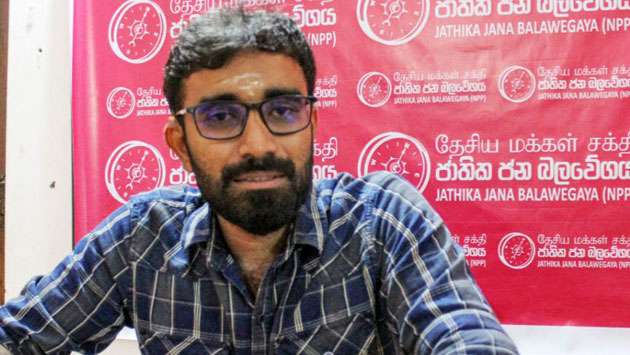Sri Lanka and the Culture of Impunity - EDITORIAL
24 February 2021 03:25 am Views - 707
The United Nations Human Rights Council (UNHRC), investigating alleged war crimes in Sri Lanka under the US-sponsored Resolution on human rights violations during the final stages of the civil war in our country is presently in session.
The Commission holds no fewer than three regular sessions a year, for a total of at least ten weeks. The Council started its March sittings on the 22nd of this month and will continue for four weeks. Sessions will also be held in June (three weeks) and September (three weeks).
In May 2010, in response to international allegations of war crimes and crimes against humanity being committed during the closing stages of the civil war and calls for action against those responsible for these crimes, then President Mahinda Rajapaksa appointed the Lessons Learnt and Reconcilliation Committee (LLRC) to make recommendations regarding measures that needed to be taken.
The report acknowledged important events and grievances that contributed to decades of political violence and civil war. It made recommendations on governance, land issues and the need for a political solution. However, the UN and other international institutions alleged the Commission did not carry out independent investigations into alleged violations of international humanitarian and human rights law that the UN had been demanding. This led to calls for the United Nations Human Rights Council, to establish an independent international investigation in 2012.
The fact that the LLRC report acknowledged, “That considerable civilian casualties had in fact occurred during the final phase of the conflict” and “that shells had in fact fallen on hospitals causing damage and resulting in casualties” contradicted the government’s claims to the contrary.
It was in the light of these revelations in addition to the April 2011 report of the UN Secretary General’s experts’ panel, the UN body in March 2014 requested the UN High Commissioner for Human Rights to “undertake a comprehensive investigation into alleged serious violations and abuses of human rights and related crimes by both parties in Sri Lanka during the period covered by the LLRC. The reality is that in wars, those worst affected are the civilian populations caught up in different war zones.
In Japan, over a hundred of thousand civillians died in the US nuclear bombing of Hiroshima and Nagasaki during the final days of World War II.
Again almost 16 square miles in and around the Japanese capital were incinerated, and between 80,000 and 130,000 Japanese civilians were killed in the US fire-bombing of Tokyo during World War II, the worst single fire-storm in recorded history. Similarly, in Vietnam the US used defoliants in civilian areas in addition to using napalm bombs on civilian targets.
What is different in Sri Lanka’s case is that there is a culture of impunity being built up around the commission of human rights violations. In 1977 after the newly elected government won a landslide victory, its supporters went on the rampage attacking political opponents. Lives were lost, property damaged and people left destitute. Thus far no one has been prosecuted.
In 1983 sections of the population attacked Tamil civilians; hundreds of Tamil civilians were brutally massacred, No one has been brought to book.
During the JVP uprisings of 1971 and 1988/89 some of the worst atrocities were unleashed on civilians by the armed forces, para military groups and the rebels, still no perpetrators prosecuted.
Between 2004 and 2010 -- a 6-year period -- at least 43 journalists and media workers were either killed or disappeared. No plausible investigations were pursued and no perpetrators have as yet been brought to justice.
Amnesty International, working closely with Sri Lankan human rights defenders, documented a persistent pattern of torture of detainees and a culture of impunity in Sri Lanka.
Impunity has unfortunately become a byword, expressing a sad characteristic in our country’s body politic. We tolerate wrong doing and those involved in dastardly deeds act with impunity. Some of the more recent examples of killers acting with impunity are the killings of media persons Lasantha Wickrematunge, Dharmaratnam Sivaram and MP Joseph Pararajasingham. The killers are well known but move in society with impunity.
The rights violation committed during the civil war were large-scale. And, like all other wartime crimes, results of political decisions. They need to be prosecuted, but like American/British and other war crimes will in end up being brushed under the carpet or convenient fall guys will take the blame if at all.
War criminals are only those who fought and lost.

